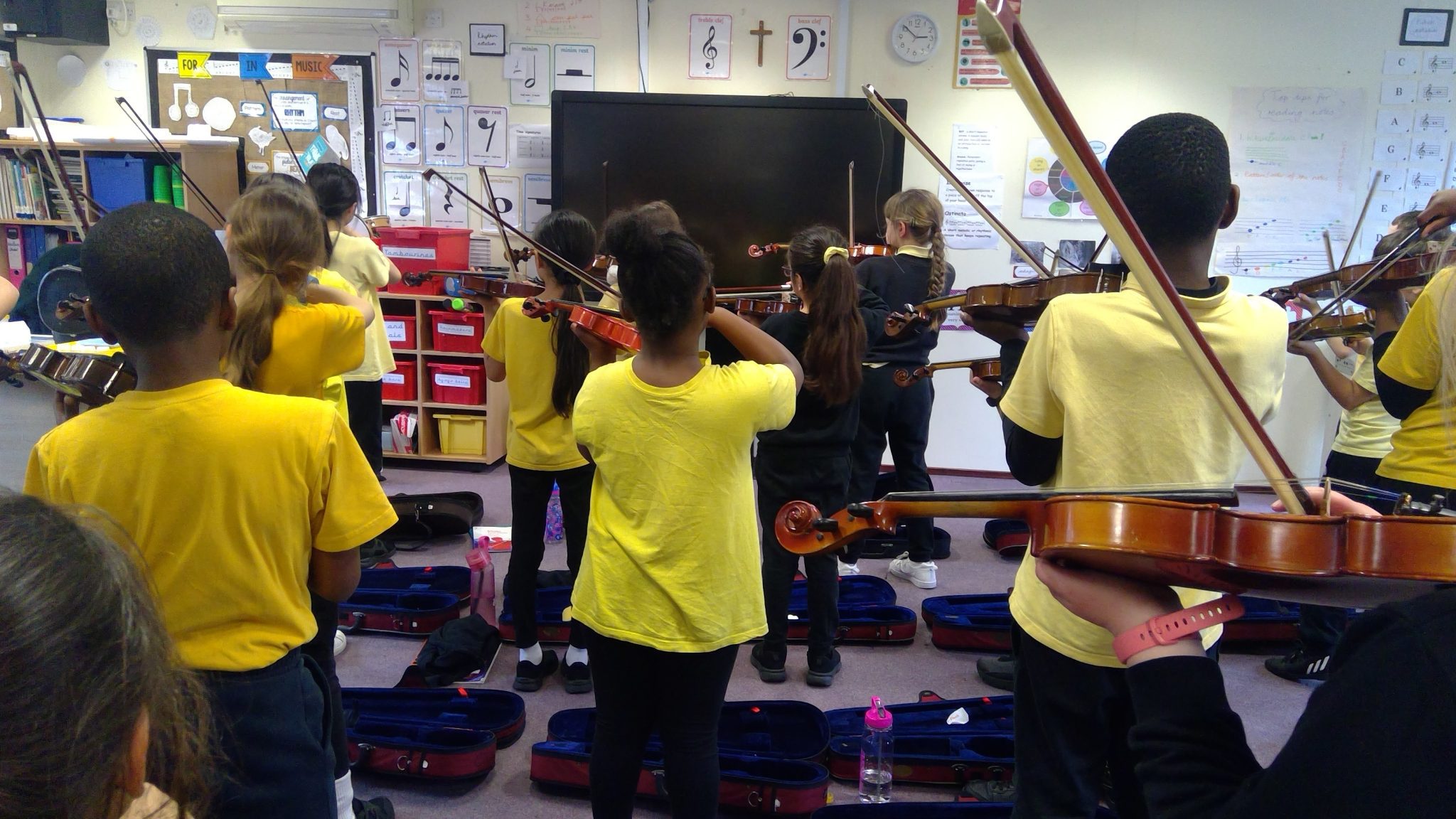Spotlight on… Ofsted at St Joseph’s Catholic Primary School in Northfleet
This month we chatted to Emma Higgins, music lead at St Joseph’s Catholic Primary School in Northfleet. Emma was subject to an Ofsted deep dive in music this year. We took the opportunity to quiz her about her experience in order to inform and guide us when carrying out Music Health Checks. Some schools have requested these in order to ensure they are fully prepared should they receive ‘The Call’.
Emma ‘s deep dive was a positive experience and below, she tells us a little about music at her school.
Can you introduce yourself?
I’m Emma Higgins. I’m very privileged to be the music teacher at St Joseph’s Catholic School in Northfleet. I was originally a class teacher, teaching both Key stage 1 and 2. After a break I took on the role of music teacher at another local school and then 4 years ago I joined St Joseph’s. I played the piano and violin as a child and still sing with a local choir.
What is your approach to music in your school?
I am lucky enough to teach every class every week as well as leading singing assemblies. I am very keen for the children to get the music bug that I caught at school because music gives me such a buzz so I try to make every lesson as engaging as it can be.
For example, Year 3 are learning to play the recorder and to support their reading of notation we use YouTube playalongs based on current songs to motivate them.
What is your vision for music in your school?
I hope that all the children will enjoy their music lessons and come away inspired to take up some sort of musical activity whether it be instrumental playing, singing in a choir or listening to a style of music they haven’t listened to before.
What are your top three tips for being a music lead?
Share your passion for music with the leadership in your school so that they support you in every way possible.
Join a Primary Music Facebook group – I’ve gleaned tons of ideas from these sites and been able to ask other music teachers for ideas and suggestions.
Find musical experiences that inspire children. We sometimes have children who have instrumental lessons play in assembly/ to their class. This has even led to Year 4 choosing to learn the violin in their WCIT!

What has been your proudest achievement so far?
We recently had an Ofsted inspection and music was deep dived. We were fortunate to be judged outstanding. They even gave the children a round of applause after singing assembly!
How did you feel on the day of the deep dive?
I was extremely nervous on the day. I’d gone through possible questions the night before and written up my answers. The inspector said that he would ask a few questions and if there were any I didn’t understand he would re-phrase them. He said he would not make much eye contact as he would be typing whilst I spoke but not to be put off by that.
He asked me a very general question to begin with – tell me about your curriculum – and allowed me to speak for some time about how it had developed over time and how I envisaged it changing.
He asked specifically about what was taught in EYFS, how SEND children were included in lessons/ individual music lessons/choir, music resources/ pulling out a thread and explaining how this is developed over time e.g., rhythm notation and enrichment activities.
How does your school plan to use the findings you received?
The school was judged outstanding and there were no specific mentions of how to improve music provision etc. I had explained that the curriculum was evolving in light of MMC and NPME.
What top pieces of advice would you give to a school preparing for a deep dive?
Make sure your website is up-to-date and tells the story of what happens musically in your school. He had gone through the website in detail. I had the full progression of skills and knowledge uploaded as well as an overview of topics taught over time on there. There are also clips of children singing and mentions in newsletters of public performances to parents/ music lessons etc.
He didn’t ask to see any evidence – however he did watch me teach EYFS, year 2 and Year 6 so he had a good idea of progress over time from these lessons. I had some clips prepared but these weren’t necessary.
No mention was made of assessment data – however I had talked about where I expected the children would be by the end of KS1, lower and upper KS2.
If you are lucky enough to have a music room – do your deep dive in there. This evidences commitment on the school’s part and showcases the resources you have.